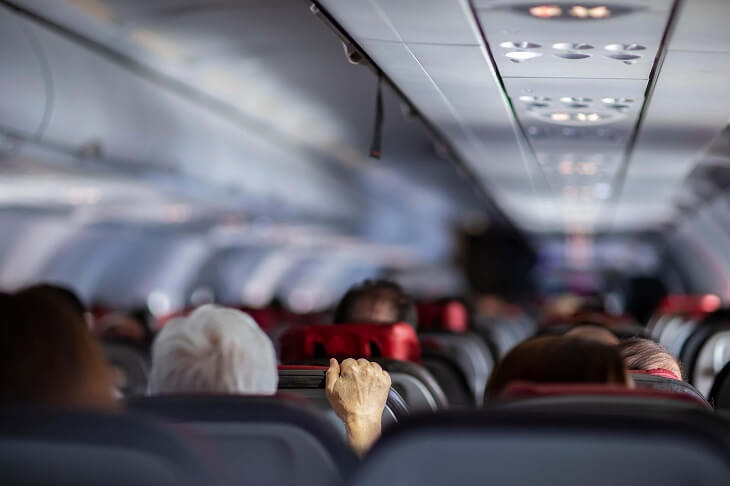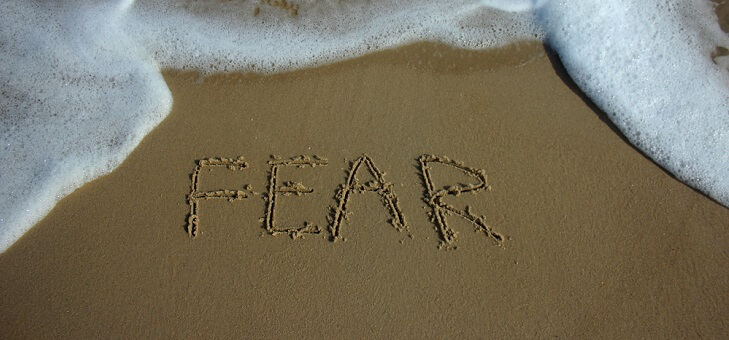You might not expect an Oscar-winning actor to suffer from stage fright, but Olivia Colman has revealed she underwent hypnotherapy after she “developed a massive fear” of performing on stage.
Appearing on the National Theatre’s Life In Stages YouTube series, the 47-year-old – who won the best actress Academy Award for her role in The Favourite and is nominated this year for The Father – admitted she feared disappointing fans who had previously seen her on screen and might think she was “not that good on stage”.
So how does hypnotherapy help with fears such as stage fright?
“We aren’t born with a fear of being on stage, we aren’t born with a fear of flying – these are learned behaviours created by the environment around us,” says Sophie Fletcher, a leading UK hypnotherapist and author of Mindful Menopause.
“They might be experiences we’ve had before, they might be things that we’ve seen happen to other people. And so just as we’ve learnt those, we can unlearn them, and hypnotherapy is brilliant at accelerating that process of unlearning.”
The technique, which involves relaxation and usually lasts from one to six sessions, can be used to treat a wide range of fears and phobias.
Read: EMDR: Delving into the trauma therapy used by Prince Harry
“I’ve worked with [fears of] lifts, escalators, balloons, frogs …” says Ms Fletcher. “I had two people in a group class once – they both had a deep water phobia that they could identify with watching Jaws when they were very young.”

How does hypnotherapy work?
Simply described, the technique works by allowing the traumatised individual, while in a safe relaxed state, to reprocess the traumatic memory so that it becomes stored as an ‘ordinary’ and non-threatening memory, rather than one that continually activated a terror response.
After a consultation with the therapist, you’ll usually lie down, close your eyes and listen as the therapist guides you into a relaxed state – no swinging pocket watches or instructions to ‘stare deep into my eyes’ necessary.
“It’s not like the stereotypes that you see on cartoons,” Ms Fletcher says. “People are very surprised to find out just how good it feels and how inspiring it is learning about your brain … and that you can have a mental toolkit you can use, not just for the phobia but for the rest of your life.”
Tempted to give it a go? Here are some other common fears that can be treated with hypnotherapy.
Flying
“Often phobias may be things that people don’t have in their daily lives. Over time, if you’re not exposed to them your imagination runs riot and it can compound that fear – fear of flying is a really big one,” Ms Fletcher explains.

But that doesn’t mean it’s harder to treat, she says. “Things such as fear of flying really respond well to hypnotherapy because you can create an internal environment where you can revisit that in a safe space. You take it to a level that you feel comfortable all the time and you build up your confidence.”
Social anxiety
Agoraphobia isn’t simply a ‘fear of leaving the house’. Social anxiety can manifest in a variety of ways.
Read: What is agoraphobia and how is it treated?
“I think we’re going to see more of this, actually, because of COVID,” Ms Fletcher says. “Many therapists are working online now, so for people with agoraphobia or social phobia that can be really useful at the moment.”
Fear of sickness
“One that is surprisingly common is emetophobia, which is fear of sickness. I have a lot of clients with a fear of sickness,” Ms Fletcher says.
Different to hypochondria, this phobia is specifically related to nausea and vomiting, she explains: “Being sick or being around people being sick, can make some people feel really anxious.”
It’s often triggered by a childhood experience. Hypnotherapy can help identify the root cause and uncouple the negative association.
Needles
The rollout of the COVID vaccine has put the spotlight on trypanophobia, a fear of hypodermic needles, which is something Ms Fletcher says often affects pregnant women.
“Pregnancy is when people really have to face a needle phobia. I’ve worked with loads of these, where people are fainting and hitting out and things like that. And hypnotherapy is really good for needle phobia.”
Practising what she preaches, Ms Fletcher made an effort to reduce the anxiety around injections with her second child, who is now completely relaxed about injections and even cannulas: “Teaching him from a very young age and normalising that from a very young age, completely changed how he responded to it.”
Read: Overcoming your fear of needles
Spiders
“There is a part of us which is alert to spiders, especially in some parts of the world, because that can be a threat,” Ms Fletcher says, but more often than not the phobia is learned in childhood from a parent or guardian who had a fear of the eight-legged creatures.
For that reason, not only can hypnotherapy reduce your own anxiety, but it can also stop you passing your fears onto your children, she adds. “I get a lot of mothers who, through hypnobirthing, understand this, so they come in and work on their phobias before their children [grow up].”
Do you have any phobias? Are you open to trying hypnotherapy? Why not share the best coping methods you’ve found in the comments section below?
– With PA
If you enjoy our content, don’t keep it to yourself. Share our free eNews with your friends and encourage them to sign up.


